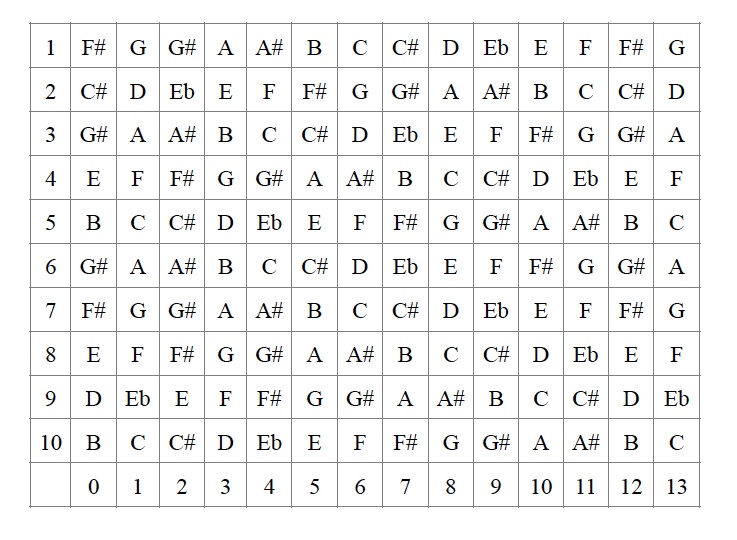If you are reading this you are reading the written English language.
You would be suspicious of the education of someone who asked you to read it for them because they could not.
You are a musician, and the written language of music is called standard notation. You should be able to read it.
The pedal steel community has evolved a system of notation and tablature that bypasses all this and has become adopted as the normal way of writing out the chords and melody of a tune for steel players.
Classical musicians, studio players and pianists, as well as violinists, cellists, bassists, horn players, etc, can all read standard notation. Why not give it a try yourself?
The advantages can only make you a more in-demand player and advance your musicality, as well as making the entire world of written music available to you, not just steel guitar tablature.
Here’s an example:
You get a call to play a gig with a band and when you ask about their set list they mention a lot of Eagles tunes. Pretty standard stuff until you check the songs out and discover they are not all standard three chord songs and have a lot of chord changes you don’t know. If you can’t take this any further without charts from the band or other help you are on your own……or….If you can read music you grab an Eagles songbook and chart out the tunes with the inversions you want to play the way you want to play them and you will sound like a star!
Here’s how to do it.
1.) Make a note chart for yourself of the tuning you use, you can use the table function in Word or Pages or Excel or whatever. I’ve attached an example of the E9 that I use for my own tuning.
2.) Learn the notes on the musical staff. There are many books and websites that will teach you this. Or ask a piano player.
3.) Write your songs out in any format that is comfortable for you. Use the Number System, actual Standard Notation or your own personal style of tablature.
This won’t happen overnight, but if you are committed to your instrument you will advance immediately and find much more confidence in your playing, as well as fitting in with the musical community around you. The main thing here is that you won’t be dependent on others to get you the musical info you need to move your career forward and sound Great!
